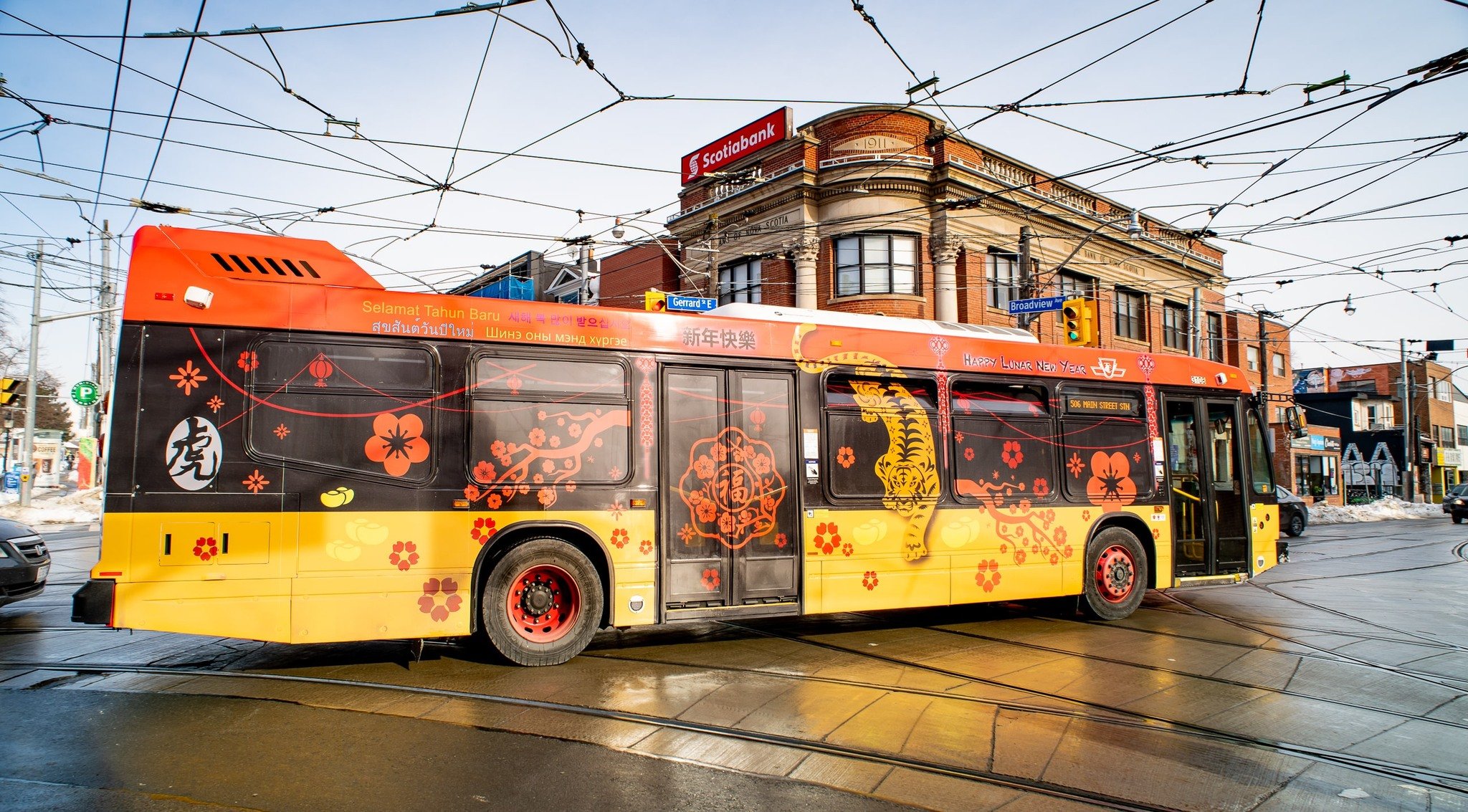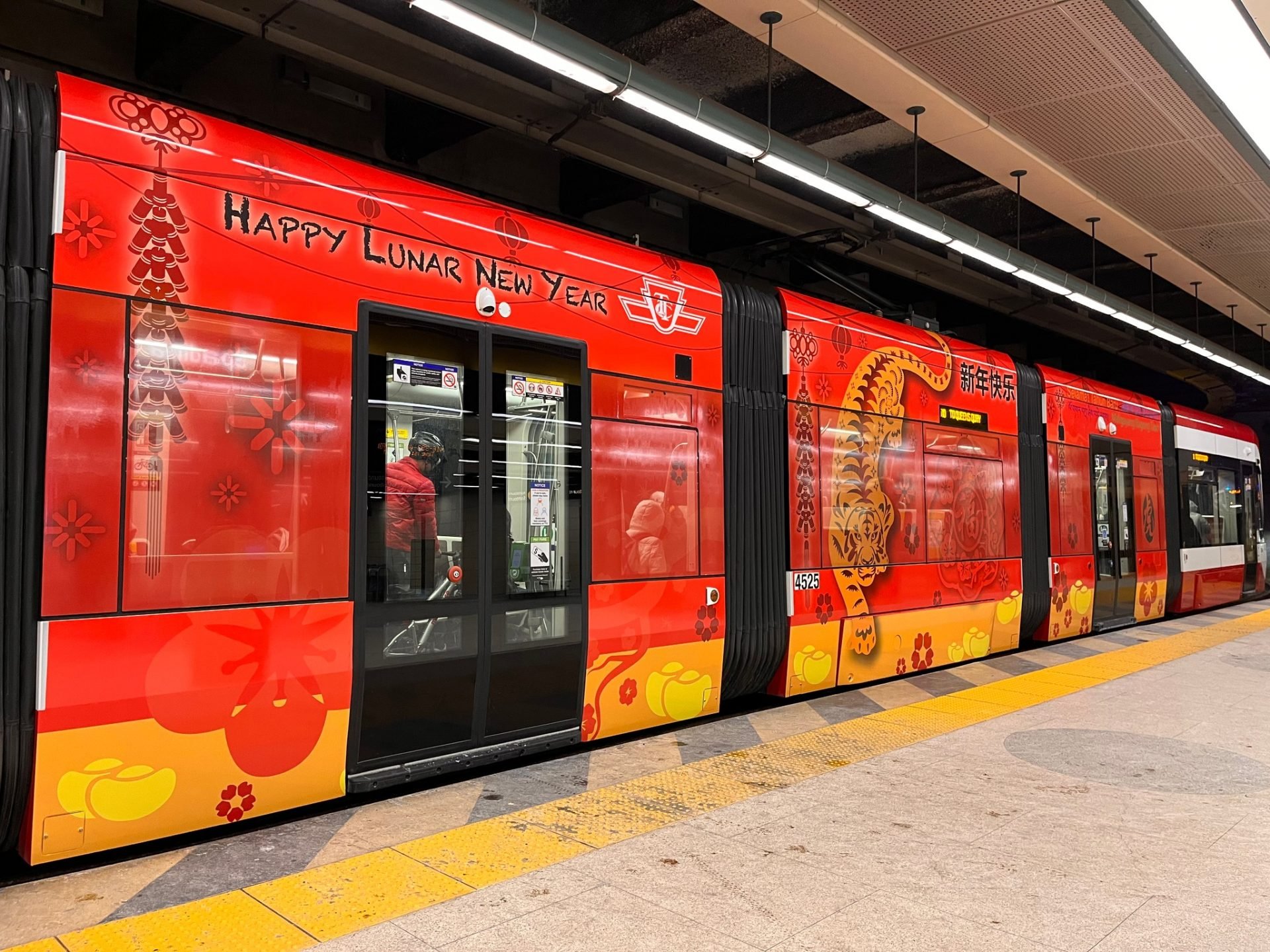Cross-Boundary Service Integration
The 905 transit agencies – Brampton Transit, Durham Region Transit, MiWay, and York Region Transit (YRT) – operate 50 bus routes within the City of Toronto on 24 cross-boundary corridors. The current "closed-door" operation on these routes means that 905 transit agency buses can only be used by transit riders travelling inbound or outbound and cannot be used by TTC customers for local trips within Toronto, despite available capacity.
This month, the TTC Board approved a plan to advance cross-boundary transit service integration, using a phased approach. To begin, MiWay and YRT will pilot "open door" service on the Burnhamthorpe and Dufferin North corridors and, if successful, these changes will be extended to all 24 cross-boundary routes. In contrast to current operations, only a single fare will be required for cross-boundary trips. In total, it is estimated that 34.3 million trips would be impacted per year.
Cross-boundary transit integration will result in more efficient regional transit operations. Service frequency and reliability will improve not only on the affected corridors, but across the system as resources are reallocated to meet demand on priority routes throughout the city. Once fully implemented, the estimated operating cost savings for the TTC range from $2.9 million to $5.2 million. In addition, the TTC would realize an estimated $17 million in capital cost savings for future vehicle replacement.
This plan to achieve cross-boundary transit integration is a foundational step towards further and more meaningful regional integration. Unfortunately, legislative changes are required before these common-sense operational changes can be rolled-out. Now that it has been approved and endorsed by the TTC Board, I am hopeful that we will have the support of our intergovernmental partners to see this plan fully implemented soon.
Annual Service Plan
The TTC Board has approved the 2022 Annual Service Plan (ASP), which was developed through extensive consultation with residents and stakeholders. This plan advances a number of key initiatives to support the TTC's objective of creating a reliable, accessible, and green transit network that meets the needs of riders, including:
Beginning service on Line 5;
Completing Automatic Train Control implementation on Line 1; and
Advancing enhanced cross-boundary service with GTHA transit partners.
The following surface routes in Ward 15 are undergoing changes to improve connectivity with Line 5 (Eglinton Crosstown LRT):
88 South Leaside
34 Eglinton
81 Thorncliffe Park
51 Leslie and 56 Leaside
162 Lawrence-Donway
Details on the 2022 ASP, including details on the routes listed above, are available in the report to the TTC Board, here.
Leading the Charge on Fleet Eletrification
The TTC is an industry leader on transit electrification and currently operates the largest mini-fleet of electric buses in North America at 60 vehicles. Once we achieve our target of full fleet electrification by 2040, we anticipate annual CO2 emissions reductions of 250,000 tonnes and fuel savings of over $50 million per year.
Earlier this month, City Council unanimously supported my motions to endorse the TTC's work on fleet electrification, which you can read below:
The TTC's 1st Lunar New Year-Themed Wrapped Vehicles.
The TTC's Black History Month-inspired wrapped buses showcasing the work of local Black artists.





